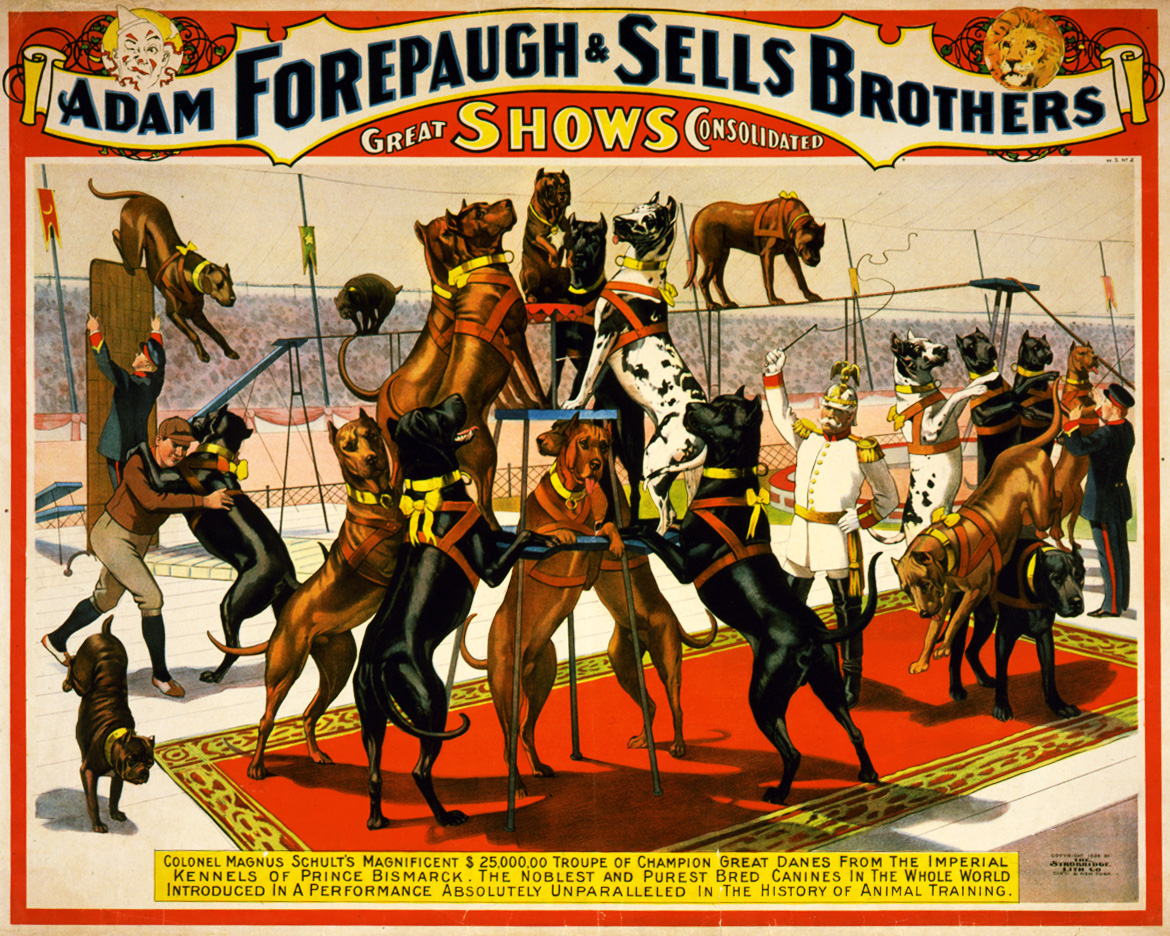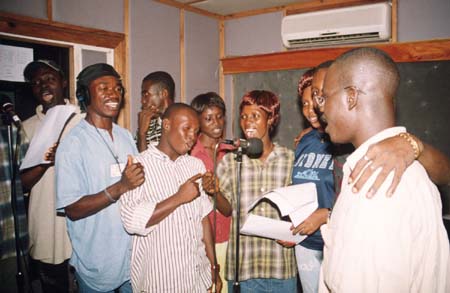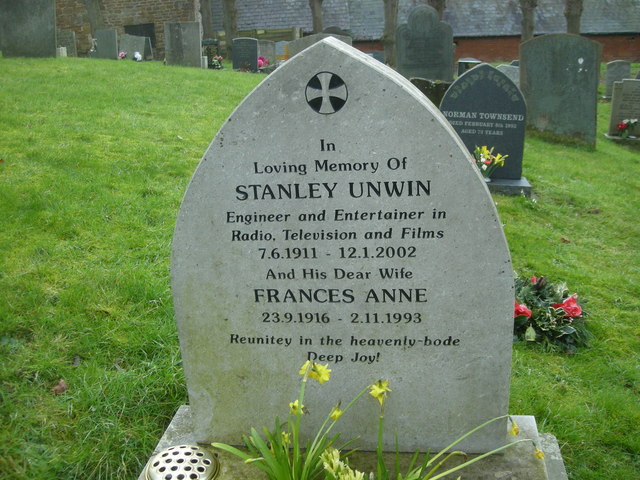|
Grammelot
Grammelot (or gromalot or galimatias) is an imitation of language used in satirical theatre, an ''ad hoc'' gibberish that uses prosody along with macaronic and onomatopoeic elements to convey emotional and other meaning, and used in association with mime and mimicry. The satirical use of such a format may date back to the 16th century commedia dell'arte; the group of cognate terms appears to belong to the 20th century. History In an essay entitled “L’art du grommelot”, French scholar Claude Duneton suggests the word (not the technique) – in its French form, ''grommelot'' – has its origins in the ''commedia dell'arte''-derived Italian theatre of the early part of the sixteenth century. Duneton studied briefly with Léon Chancerel (1886–1965), who was a major figure in this branch of theatre. Chancerel in fact uses the word in his book, ''Le théâtre et la jeunesse'' (Paris: Bourrellier 1946:47). Others, such as theatre scholar John Rudlin in ''Commedia dell'arte: An A ... [...More Info...] [...Related Items...] OR: [Wikipedia] [Google] [Baidu] |
Carlo Bonomi
Carlo Bonomi (12 March 1937 – 6 August 2022) was an Italian voice actor and clown who was best known for his voiceover work as the voice of Mr. Linea in the animated series '' La Linea'' as well as Pingu and various other characters in series 1-4 of the stop-motion children's television series of the same name. Career Bonomi voiced many characters for the Italian advertising show '' Carosello''. The language of noises he had developed and used for the earlier Osvaldo Cavandoli's '' La Linea'' from 1971 to 1986 was reinterpreted for the acclaimed TV series ''Pingu'' on SF DRS during its first four seasons produced between 1990 and 2000, where Bonomi voiced all the characters without a script. His grammelot was originally intended to be a parody of the Milanese dialect, and it was inspired by three abstract languages traditionally used by clowns in France and Italy. When in 2003 the show's rights were acquired by HIT Entertainment, Bonomi was replaced by London-based voice a ... [...More Info...] [...Related Items...] OR: [Wikipedia] [Google] [Baidu] |
Pingu
''Pingu'' is a stop-motion children's television series co-created by Otmar Gutmann and Erika Brueggemann. It was originally produced from 1990 to 2000 by Swiss company The Pygos Group (originally called Trickfilmstudio) for SF DRS in Switzerland. It was later revived from 2003 to 2006 for CBeebies by British companies HIT Entertainment and Hot Animation. The series focuses on a family of anthropomorphic emperor penguins who live in the South Pole; the main character is the family's son and title character, Pingu. The series originally ran for four series from 7 March 1990 to 9 April 2000 on SF DRS. It was then renewed for two more series from 1 August 2003 to 3 March 2006 on CBeebies. ''Pingu'' was also nominated for a BAFTA award in 2005. The pilot episode was made on 28 May 1986. Pingu became popular outside of Switzerland, in part due to its lack of a real spoken language: nearly all dialogue is in an invented grammelot "penguin language" referred to as 'Penguinese', con ... [...More Info...] [...Related Items...] OR: [Wikipedia] [Google] [Baidu] |
La Linea (TV Series)
''La Linea'' ("The Line") is an Italian animated series created by the Italian cartoonist Osvaldo Cavandoli. The series consists of 90 episodes, which were originally broadcast on the Italian channel RAI between 1971 and 1986. The background tune for the series was created by Franco Godi. The series features a man known as "Mr. Linea" (voiced by Carlo Bonomi in a grammelot similar to the Milanese dialect) drawn as a single outline of an infinite line, which encounters various obstacles during his walking, and often turns to the cartoonist, represented as a live-action hand holding a pencil, to draw him a solution. All episodes are short subjects, ranging from 2:30 to 6:40 in runtime. The series aired in more than 50 countries around the world; due to the short length of episodes, it has often been used in many networks as an interstitial program, including in the United States. Over the years, ''La Linea'' gained a widespread popularity worldwide, and it is considered to be ... [...More Info...] [...Related Items...] OR: [Wikipedia] [Google] [Baidu] |
Mistero Buffo
''Mistero buffo'' ("Comical Mystery Play") is Dario Fo's solo ''pièce célèbre'', performed across Europe, Canada and Latin America from 1969 to 1999. It is recognised as one of the most controversial and popular spectacles in postwar European theatre and its broadcast in Italy prompted the Vatican to denounce it as "the most blasphemous show in the history of television". Mistero buffo is a series of brief monologues with Biblical themes, drawn from the Biblical apocrypha and popular tales of the life of Christ. The performance texts are in a mixture of Italian, dialect and grammelot – a constructed or rather extemporised language that draws on, and mixes up, regional languages. Fo's work originates in the surviving texts and descriptions of the '' giullari'', itinerant players of medieval times, who would travel to towns and villages, bringing the latest news. The title of the piece is borrowed from '' Mystery-Bouffe'' by Vladimir Mayakovsky Vladimir Vladimirovich May ... [...More Info...] [...Related Items...] OR: [Wikipedia] [Google] [Baidu] |
Italian Theatre
The theatre of Italy originates from the Middle Ages, with its background dating back to the times of the ancient Greek colonies of Magna Graecia, in Southern Italy, the theatre of the Italic peoples and the theatre of ancient Rome. It can therefore be assumed that there were two main lines of which the ancient Italian theatre developed in the Middle Ages. The first, consisting of the dramatization of Catholic liturgies and of which more documentation is retained, and the second, formed by pagan forms of spectacle such as the staging for city festivals, the court preparations of the jesters and the songs of the troubadours. Renaissance humanism was also a turning point for the Italian theatre. The recovery of the ancient texts, both comedies and tragedies, and texts referring to the art of the theatre such as Aristotle's '' Poetics'', also gave a turning point to representational art, which re-enacted the Plautian characters and the heroes of Seneca's tragedies, but also bu ... [...More Info...] [...Related Items...] OR: [Wikipedia] [Google] [Baidu] |
Macaronic Language
Macaronic language uses a mixture of languages, particularly bilingual puns or situations in which the languages are otherwise used in the same context (rather than simply discrete segments of a text being in different languages). Hybrid words are effectively "internally macaronic." In spoken language, code-switching is using more than one language or dialect within the same conversation. Macaronic Latin in particular is a jumbled jargon made up of vernacular words given Latin endings or of Latin words mixed with the vernacular in a pastiche (compare dog Latin). The word '' macaronic'' comes from the New Latin ''macaronicus'' which is from the Italian ''maccarone'' ("dumpling," regarded as coarse peasant fare). It is generally derogatory and used when the mixing of languages has a humorous or satirical intent or effect but is sometimes applied to more serious mixed-language literature. History Mixed Latin-vernacular lyrics in Medieval Europe Texts that mixed Latin and ... [...More Info...] [...Related Items...] OR: [Wikipedia] [Google] [Baidu] |
The Great Dictator
''The Great Dictator'' is a 1940 American anti-war political satire black comedy film written, directed, produced, scored by, and starring British comedian Charlie Chaplin, following the tradition of many of his other films. Having been the only Hollywood filmmaker to continue to make silent films well into the period of sound films, Chaplin made this his first true sound film. Chaplin's film advanced a stirring condemnation of Adolf Hitler, Benito Mussolini, fascism, antisemitism, and the Nazis. At the time of its first release, the United States was still formally at peace with Nazi Germany and neutral during what were the early days of World War II. Chaplin plays both leading roles: a ruthless fascist dictator and a persecuted Jewish barber. ''The Great Dictator'' was popular with audiences, becoming Chaplin's most commercially successful film. Modern critics have praised it as a historically significant film, one of the greatest comedy films ever made and an important ... [...More Info...] [...Related Items...] OR: [Wikipedia] [Google] [Baidu] |
Cirque Du Soleil
Cirque du Soleil (, ; "Circus of the Sun" or "Sun Circus") is a Canadian entertainment company and the largest contemporary circus producer in the world. Located in the inner-city area of Saint-Michel, it was founded in Baie-Saint-Paul on 16 June 1984 by former street performers Guy Laliberté and Gilles Ste-Croix. Originating as a performing troupe called ''Les Échassiers'' (; "The Stilt Walkers"), they toured Quebec in various forms between 1979 and 1983. Their initial financial hardship was relieved in 1983 by a government grant from the Canada Council for the Arts to perform as part of the 450th anniversary celebrations of Jacques Cartier's voyage to Canada. Their first official production ''Le Grand Tour du Cirque du Soleil'' was a success in 1984, and after securing a second year of funding, Laliberté hired Guy Caron from the National Circus School to recreate it as a "proper circus". Its theatrical, character-driven approach and the absence of performing animals hel ... [...More Info...] [...Related Items...] OR: [Wikipedia] [Google] [Baidu] |
Circus
A circus is a company of performers who put on diverse entertainment shows that may include clowns, acrobats, trained animals, trapeze acts, musicians, dancers, hoopers, tightrope walkers, jugglers, magicians, ventriloquists, and unicyclists as well as other object manipulation and stunt-oriented artists. The term ''circus'' also describes the performance which has followed various formats through its 250-year modern history. Although not the inventor of the medium, Philip Astley is credited as the father of the modern circus. In 1768, Astley, a skilled equestrian, began performing exhibitions of trick horse riding in an open field called Ha'Penny Hatch on the south side of the Thames River, England. In 1770, he hired acrobats, tightrope walkers, jugglers and a clown to fill in the pauses between the equestrian demonstrations and thus chanced on the format which was later named a "circus". Performances developed significantly over the next fifty years, with large-sca ... [...More Info...] [...Related Items...] OR: [Wikipedia] [Google] [Baidu] |
Voice Actor
Voice acting is the art of performing voice-overs to present a character or provide information to an audience. Performers are called voice actors/actresses, voice artists, dubbing artists, voice talent, voice-over artists, or voice-over talent. Voice acting is recognised as a specialized dramatic profession in the United Kingdom, primarily due to BBC broadcasts of radio drama production. Examples of voice work include animated, off-stage, off-screen or non-visible characters in various works such as feature films, dubbed foreign-language films, animated films, anime, television shows, video games, cartoons, documentaries, commercials, audiobooks, radio dramas and comedies, amusement rides, theater productions, puppet shows and audio games. Voice actors are also heard through pre-recorded and automated announcements that are a part of everyday modern life in areas such as shops, elevators, waiting rooms and public transport. The role of a voice actor may involve singi ... [...More Info...] [...Related Items...] OR: [Wikipedia] [Google] [Baidu] |
Stanley Unwin (comedian)
Stanley Unwin (7 June 1911 – 12 January 2002), sometimes billed as Professor Stanley Unwin, was a British comic actor and writer. He invented his own comic language, "Unwinese", referred to in the film ''Carry On Regardless'' (1961) as " gobbledygook". Unwinese was a corrupted form of English in which many of the words were altered in playful and humorous ways, as in its description of Elvis Presley and his contemporaries as being "wasp-waist and swivel-hippy". Unwin claimed that the inspiration came from his mother, who once told him that on the way home she had "falolloped (fallen) over" and "grazed her kneeclabbers". Early life Unwin's parents, Ivan Oswald Unwin (1880-1914) and his wife Jessie Elizabeth ( Brand; 1883-1968) emigrated from England to the Union of South Africa in the early 1900s. Their son was born in Pretoria in 1911. Following his father's death in 1914, due to the family's poverty Unwin's mother arranged for the family to return to England. She worked ... [...More Info...] [...Related Items...] OR: [Wikipedia] [Google] [Baidu] |
Comedian
A comedian or comic is a person who seeks to entertain an audience by making them laugh. This might be through jokes or amusing situations, or acting foolish (as in slapstick), or employing prop comedy. A comedian who addresses an audience directly is called a stand-up comedian. A popular saying often attributed to Ed Wynn attempts to differentiate the two terms: "A comic says funny things; a comedian says things funny." This draws a distinction between how much of the comedy can be attributed to verbal content and how much to acting and persona. Since the 1980s, a new wave of comedy, called alternative comedy, has grown in popularity with its more offbeat and experimental style. This normally involves more experiential, or observational reporting (e.g., Alexei Sayle, Daniel Tosh, Malcolm Hardee). As far as content is concerned, comedians such as Tommy Tiernan, Des Bishop, Kevin Hart, and Dawn French draw on their background to poke fun at themselves, while others such as Jon ... [...More Info...] [...Related Items...] OR: [Wikipedia] [Google] [Baidu] |






